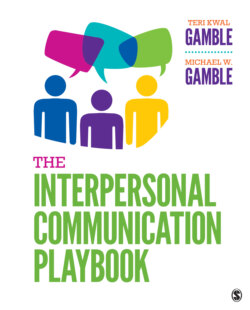Читать книгу The Interpersonal Communication Playbook - Teri Kwal Gamble - Страница 30
На сайте Литреса книга снята с продажи.
It Fulfills Psychological Functions
ОглавлениеFirst and foremost, just as we need water, food, and shelter, we need people. When we are cut off from human contact, our health suffers. In fact, being in at least one good relationship appears to be a prerequisite of physical and psychological well-being.7 For example, some maximum-security prisoners are locked alone in their cells for up to 23 hours each day. The feelings of isolation the inmates experience result in their becoming restless, angry, violent, and potentially suicidal. When restrictions are loosened, however, and inmates allowed out of their cells for hours each day, able to play sports and mingle and dine with others, their behavior and emotional health improve.8
Interpersonal communication also enhances self–other understanding. Through our interactions with others, we learn how different individuals affect us. In fact, we depend on interpersonal communication to develop our self-awareness, hone our communication presence, and maintain our sense of self. To quote communication theorist Thomas Hora: “To understand oneself, one needs to be understood by another. To be understood by another, one needs to understand the other.”9
Because interpersonal communication is a fluid process that depends on constantly changing components, it offers lots of opportunities for self–other discovery. Different contexts help us figure out who likes or dislikes us and why, when and why to trust or distrust someone, what behaviors elicit the strongest reactions, under what conditions we have the power to influence another person, and whether we have the ability to resolve relational conflict.
